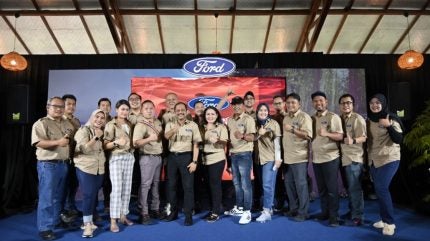
Ford Motor Company has agreed to invest in an electric vehicle (EV) manufacturing plant in Indonesia in 2025, according to Indonesian government sources. The US automaker has yet to confirm these reports, however.
Ford returned to the Indonesian market in 2022 after a six-year absence through its partnership with Bangkok-based RMA Group. It now sells the Thai-made Ranger pickup truck and Everest SUV derivative in the country, with a combined 664 deliveries so far this year.
Indonesia’s Deputy Industry Minister, Faisol Riza, told reporters at an event in Jakarta this week: “Ford has promised to realise its factory and investment in Indonesia by next year.”
Last year Ford joined global mining giant Vale and China’s Zhejiang Huayou Cobalt Company in investing in a $4.5bn nickel processing project managed by PT Kolaka Nickel Indonesia on the island of Sulawesi. Indonesia is the world’s largest producer of nickel, a key ingredient used in EV batteries
The Indonesian government has been in talks with several global automakers in the last two months, since the new government of President Prabowo Subianto took office in October, including with Volkswagen Group and Ford.
Faisol Riza said at the event: “It looks like some of the global vehicle manufacturers that were once here and then disappeared will be coming back. We aim for all manufacturers to establish factories in Indonesia because of their high social and economic impact, particularly in job creation.”
The Deputy Industry Minister confirmed the government’s plans to increase local content requirements for battery electric vehicles (BEVs) to 40% by the end of 2026, rising in stages to 80% by the end of 2030, adding “We are committed to building an EV ecosystem that meets these local content targets.”



